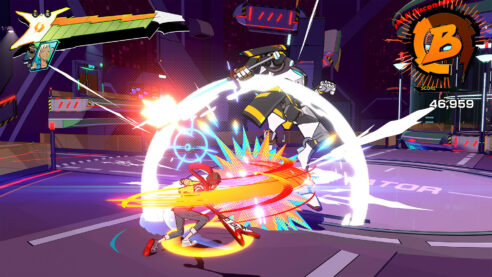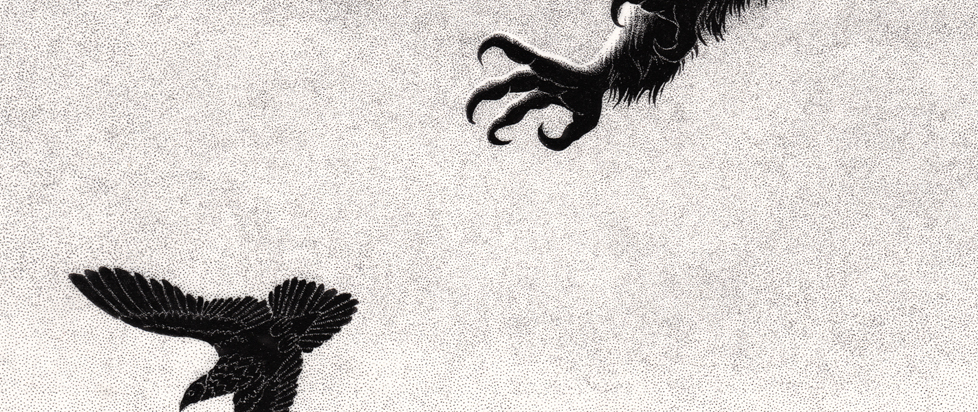
Performing Through Failure to Hit that Hi-Fi Rush
To me, the most interesting part of Hi-Fi Rush was failure. I enjoyed the game, the music was great, the art was beautiful, the dialogue was cute, the characters were endearing – and these are elements I can find in any number of games. Throughout most of the game, failure was also standard videogame fare – lose health to enemies, environmental hazards, platforming misses, get a game over screen when your health hits zero, you get it.
As a former band kid, my memories of excellence in Rockband 2 must have been inflated, or my rhythmic skills have deteriorated with lack of use and age, because I could not for the life of me get into the groove of the combat combo rhythm that is the optimal way to approach enemies in Hi-Fi Rush. If I were trying to assuage my ego, I’d claim my almost twenty year old Xbox 360 controller plugged into my PC was the reason I couldn’t land the inputs on the beat, but alas, I can own up to the fact that I just might not be as good at rhythm games as I thought. Maybe my previous experience playing a musical instrument didn’t transfer so well, particularly since it was the trombone, not anything in the percussion family.
Failure became slightly more interesting during more narrative mechanical tasks in the game. Quick-time events (QTEs) are utilized heavily throughout, but all appropriately placed — the game is about rhythmic precision, so pushing buttons on the beat makes a lot of sense, and feels rewarding. Sometimes failing QTEs depletes your health and the game keeps moving, sometimes you get a different piece of dialogue from a character if you fail versus if you succeed, and sometimes you get a record scratch and a camera rewind to try the QTE again. The penultimate level, or track, of the game, “The Needle Drop,” is mostly exposition, the narrative climax where Chai and the allies he’s picked up along the way prepare to face off against the evil CEO, who’s using his corporation and technology to control the world. When all the characters finally meet face-to-face, the antagonist immediately traps the good guys in a “harmonic force field” that even your powerful weapon/instrument can’t break through. No, to conquer evil Chai has to “synchronize with the frequency” of the force field via the not-iPod accidentally embedded in his chest at the beginning of the game. The player accomplishes this via QTEs. What the moment lacks in unique player interaction, it makes up for in a swelling, beautiful song in the background that for every successful button press, layers in another instrumental track to the music, creating an emotional high point in the game. The player gets thirty-two beat sets, or eight bars of four beats each, to perform three groups of button press sequences.
Whether it was the aforementioned controller, or my own ineptitude, I was missing a lot of inputs in this central scene of track eleven. I felt like it was running abnormally long, and I was wondering how long it was going to continue until I realized the game was giving me the same inputs over and over, because I was failing. Rather than kick me to a “game over” screen, or interrupt me at all, Hi-Fi Rush was looping me back to the beginning of the eight bar count almost seamlessly. It was so gently letting me fail I didn’t even realize I was failing, so focused on just being prepared to try again on the next set of QTEs that popped up on the screen.

My downfall in my past musical endeavors was performance anxiety. Regardless of how the band sounded, how the audience received the set, I was always a wreck after any concert. Of course as an amateur musician I always had room for improvement, but in hindsight, even if I had nailed every chorus and killed every solo, I’m sure I still would’ve had an emotional breakdown over some imagined failure after the performance anyway. The stakes always felt sky high and I could never seem to approach it all with a level head. In what was ultimately a cosmic mercy, I didn’t get into the school of music in college and gave up performing, changed majors, and thankfully relaxed a little bit.
Looking back, certainly the audience contributed to my performance anxiety – these people were here to watch the best I could do in one shot, no do overs. However, the days we had to do spot check tests just during rehearsal also destroyed my calm. To my anxiety, it was less about the audience than ratcheting up play from rehearsal to performance. Similarly, there is a performance to games, from reaching an in-game objective, or literally a developer-created achievement as an extra bonus for a particular feat or choice in a game. I never thought about how my performance anxiety stayed relegated to musical performance but didn’t plague me in other hobbies, like videogames. In a game, I’m expecting to fail. From failing, I can learn and improve and eventually succeed. Unlike a musical performance, the performance of a game is one that can happen over and over again, facilitating learning and improving versus front-loading practice and putting it all out there on a literal stage in front of a crowd.
Hi-Fi Rush married failure and performance for me in a way I hadn’t thought about before. It unearthed for me the foundational presence of failure in every performance. The pivotal track eleven scene was integral to the experience of the game, the story, and yet the developers knew that equally integral to this performance was the grace to fail and stay in the moment. With the gentlest of touches, players are guided back to the beginning, to try again, barely aware of the failure. It almost makes me want to pick up an instrument again, to think of performance as a chance to try and nail a set number of bars, and if I mess it up, I’ll just try again the next time.
———
Fred Banks fills his days managing dog treat distribution and meeting tummy scratch quotas, but punctuates that with writing, reading, and playing videogames. All of his writing is compiled at fredbanks.com.





